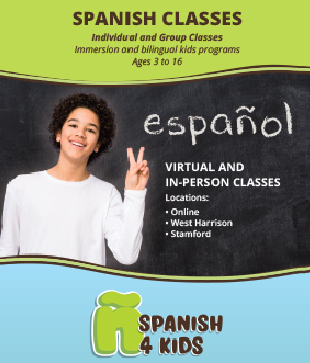By Monica L. Mandell, LMSW
Bilingual Social Worker
Educational Advocate
MLM Advocacy
mlmadvocacy.com – 914-308-0751
¿Qué es una reunión de padres y maestros? ¿Es importante? ¿Debo estar preparado? La reunión de padres es una oportunidad para aprender sobre el desempeño de tu hijo en la escuela y para conocer a su maestro. Es un intercambio de información. El maestro te explicará cómo le está yendo a tu hijo con sus estudios en la escuela, cómo se lleva con sus compañeros y sobre los resultados de sus exámenes. Esta reunión te guiará para ayudar mejor a tu hijo si tiene dificultades. Lo más importante es que la misma, te permitirá desarrollar una relación de trabajo positiva con el educador. Aquí hay cinco estrategias para que tu reunión de padres sea productiva.
1 Sé puntual. El maestro programa las reuniones con todos los padres de los estudiantes, por lo que tiene un período de tiempo muy corto para discutir y revisar el progreso de tu hijo. Si llegas tarde, tienes menos tiempo para hablar sobre el desempeño de tu hijo en la escuela. Comienza la conversación dejando que el maestro sepa lo que tu hijo disfruta en el aula. Si tu reunión es virtual, asegúrate que tienes todo lo necesario para conectarte a la misma.
2 Si te sientes incómodo hablando inglés o no lo hablas, invita a un amigo o asegúrate de que haya un traductor que pueda ayudarte a comprender. Entender lo que dice el maestro, te permitirá ayudar con cualquier problema. Esto también conducirá a desarrollar una relación de trabajo positiva con el educador.
3 Escribe las preguntas que quieres hacerle al maestro. Ejemplos: (1) ¿Cómo ha sido el progreso académico de mi hijo? (2) ¿Se comporta bien en la escuela? (3) ¿Cuáles son sus hábitos de trabajo? (4) ¿Cómo se lleva con los otros niños? (5) ¿Cuánta tarea recibirá mi hijo cada semana?
4 Aunque la reunión de padres es acerca de cómo se está desempeñando su hijo en la escuela, también es una oportunidad para hablar con el educador sobre otras preocupaciones que pueda tener sobre su hijo. Si ocurre algo en el hogar que esté afectando la capacidad de tu hijo para concentrarse en el aula, infórmaselo. Éste podrá referirte al trabajador social de la escuela que puede ayudarte a resolver los problemas que ocurren en la casa.
5 Prepárate para escuchar sobre cualquier problema que tu hijo pueda estar experimentando. Un buen maestro resumirá los aspectos positivos y negativos de tu hijo. Debido a que te reunirás con el maestro por un corto período de tiempo, éste dedicará la mayor parte a discutir los problemas para poder trabajar juntos y llegar a una solución. No te pongas a la defensiva y descubre cómo tú y el maestro juntos pueden ayudar a tu hijo.
Prepárate para escuchar y aprender acerca de tu hijo. Que el estudiante pueda ver que su padre y su maestro están trabajando juntos, le ayudará a construir su propia relación positiva con el educador, lo que lleva a una mejora en su educación y más motivación para tener éxito.
¿Está tu hijo con dificultades en la escuela? Puedo ayudar:
Monica L. Mandell, LMSW – 914-308-0751 – Hablo español
By Monica L. Mandell, LMSW
Bilingual Social Worker
Educational Advocate
MLM Advocacy
mlmadvocacy.com – 914-308-0751
What is a parent teacher conference? Is it important? Should I be prepared? A parent teacher conference is an opportunity to learn about how your child is doing in school and to get to know your child’s teacher. It is an exchange of information. Your child’s teacher will tell you all about how your child is doing in school with his/her academic studies, how he/she gets along with peers and about their performance on school tests. A parent teacher conference helps you understand how to best help your child if they are struggling, and most importantly, allows you to develop a positive working relationship with your child’s teacher. Here are five strategies to help you make your parent teacher conference productive.
1 Be on time. The teacher schedules conferences with the parents of all students so you have a very short period of time to discuss and go over your child’s progress. If you arrive late then you have less time to discuss how your child is doing in school. Start the conversation by letting the teacher know what your child enjoys in the classroom. If you’re having a virtual meeting make sure that you have the link or meeting credentials.
2 If you feel uncomfortable speaking English or do not speak English, bring a friend or make sure that there is a translator who can help you understand. When you understand what the teacher is saying, you are better able to help with any problems. This will also lead to developing a positive working relationship with your child’s teacher.
3 Write down the questions that you want to ask your child’s teacher. Here are some examples of questions: (1) How has my child progressed academically? (2) Does my child behave in school? (3) What are my child’s work habits? (4) How does my child get along with the other children? (5) How much homework will my child receive each week?
4 Although the parent teacher conference is about how your child is doing in school, it is also an opportunity to talk to the teacher about other concerns you may have about your child. If there is something happening at home that is affecting your child’s ability to concentrate in the classroom, tell the teacher. The teacher can refer you to the school social worker who can help you resolve issues that are occurring at home.
5 Be prepared to hear about any problems your child may be experiencing. A good teacher will summarize both the positive and negative aspects concerning your child. Because you are meeting with the teacher for a short amount of time, your child’s teacher will devote more time to discussing the problems in order to work together towards coming to a solution. Find out how you and the teacher can work together to help your child.
Be prepared to listen and learn about your child. When they see that you and their teacher are working together, it may enable your child to have their own positive relationship with the teacher. It leads to an enhancement in their education and more motivation to succeed.
Is Your Child Struggling in School? I can help:
Monica L. Mandell, LMSW – 914-308-0751 – Hablo español





